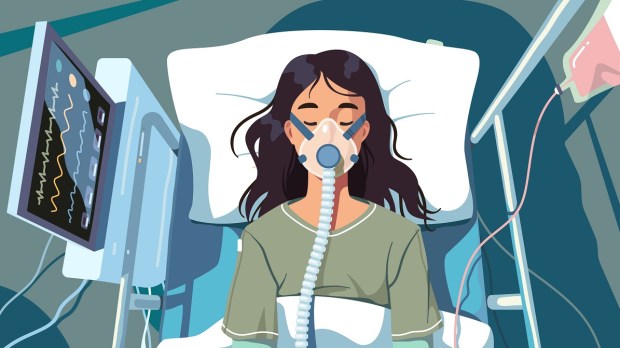A 19-year-old UK student is fighting the courts for the right to continue living, rather than be placed in palliative care where she would die in days. The case has drawn criticisms from Catholic bioethics experts, who have called the opinions of the court a “lethal form of paternalism.”
According to OSV, the patient, identified only as “ST,” has been in intensive care for the better part of a year after a COVID-19 infection led to respiratory failure. Also grappling with a progressive mitochondrial illness, which can affect the nervous system and muscles, ST is currently completely dependent on a ventilator to breathe, a feeding tube to receive nutrients, and a hemodialysis machine to clean her blood.
Her dire condition has led doctors to decide that her best option of treatment is to be placed in palliative care, where she would no longer receive hemodialysis and she would die within days. ST, however, who has been completely conscious, alert, and able to communicate, does not want to give up on life and has instructed her lawyers to oppose the doctors’ plan, instead seeking to find treatment in the US or Canada. She told a psychiatrist who spoke with her:
“This is my wish. I want to die trying to live. We have to try everything.”
While it seems natural to seek to preserve one’s own life, the presiding judge, Justice Roberts, ruled in late August that ST “does not believe the information given by her doctors,” and therefore she is considered “unable to make a decision for herself in relation to her future medical treatment.” It should be noted that Roberts had previously recognized that ST “does not suffer from any recognized psychiatric or psychological illness.”
Roberts stated in his conclusion:
“In my judgment, and based upon the evidence which is now before the court, I find on the balance of probabilities that ST’s complete inability to accept the medical reality of her position, or to contemplate the possibility that her doctors may be giving her accurate information, is likely to be the result of an impairment of, or a disturbance in the functioning of, her mind or brain.”
The decision to disregard the opinions and desired treatment of a conscious and coherent patient has drawn critical remarks from Anselm Bioethics Center, which wrote in a September 4 statement that the state is treating an adult patient like a child, and that the authorities making a decision for an adult who is capable of making the call herself is an act of “paternalism.”
“The judge has taken a perilous step in interpreting ST’s disagreement with her doctors as tantamount to an inability to use the information she has been given about her condition. She can use it. She just disagrees with it.”
The statement added: “Her wish to continue to receive life-sustaining treatment, such as dialysis, is not only being ignored, but that very wish is being seen as a reason to deny her dignity as a mentally capable adult. This is a lethal form of paternalism.”



